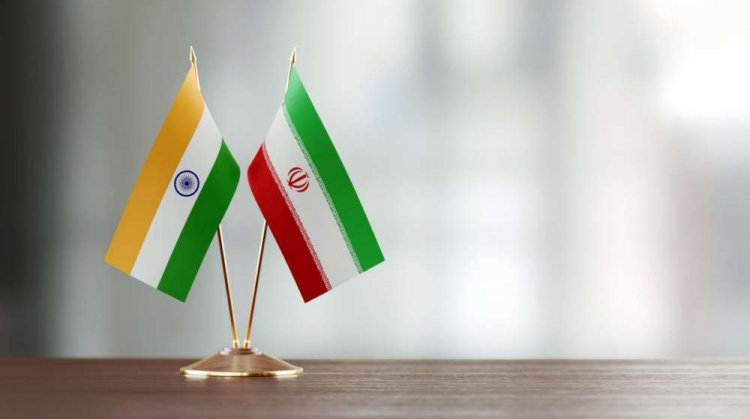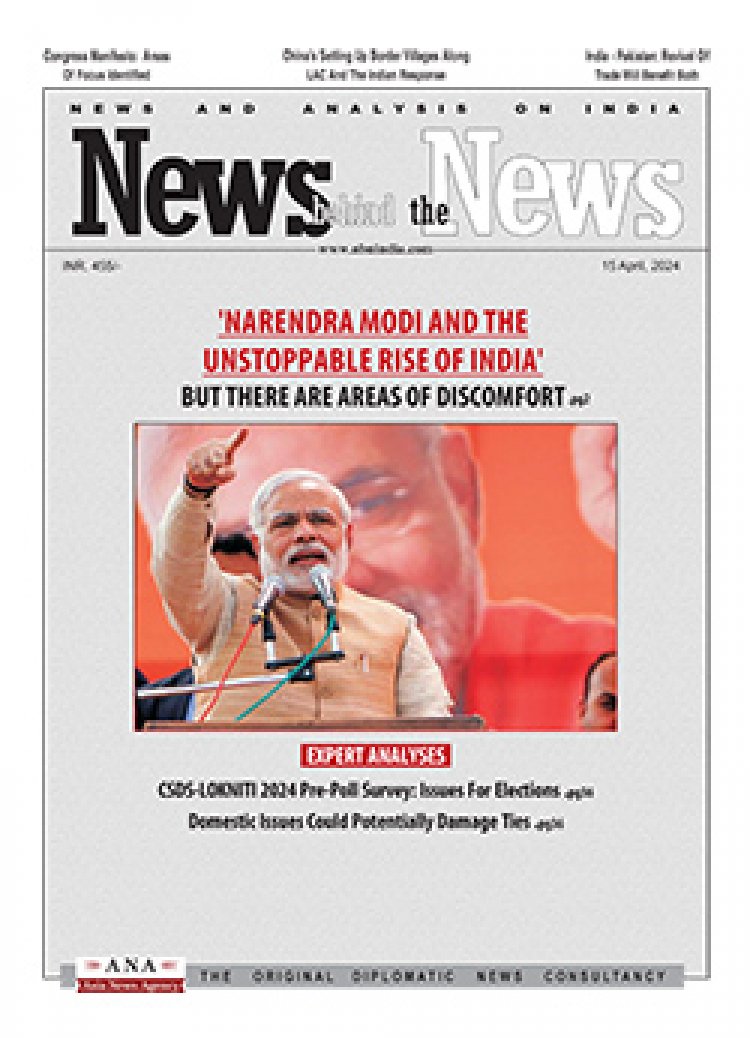India - Iran: Visit by Iranian Foreign Minister - Outcome
STORIES, ANALYSES, EXPERT VIEWS

India and Iran Wednesday held wide-ranging talks focusing on enhancing trade, connectivity and counter-terror cooperation even as Iranian Foreign Minister Hossein Amir-Abdollahian raised the issue of controversial remarks on Prophet Muhammad made by two former BJP spokespersons.
The Iranian foreign minister, who was on a three-day visit to India, also called on Prime Minister Narendra Modi.
It is the first visit to India by a senior minister of a member nation of the Organisation of Islamic Cooperation after the controversial remarks triggered anguish in the Arab World.
Abdollahian's visit to India came days after Iran joined Kuwait and Qatar in summoning the Indian ambassadors over the remarks against Prophet Mohammad by Nupur Sharma and Naveen Jindal.
Iranian readout of the visit
Talks on controversial remarks on the Prophet: The Iranian readout of Abdollahian's talks with Doval said the foreign minister raised the issue of the controversy triggered by the comments on Prophet. It said the NSA reaffirmed the Indian government's respect for the founder of Prophet Mohammad, saying offenders will be "dealt with in such a way that others will learn a lesson".
"Abdollahian hailed the Indian people and government for their respect for the divine faiths, especially the Prophet Mohammad and also for the religious tolerance, historical coexistence and friendship among followers of various religions in the country," the readout said.
It stated the Iranian foreign minister called for attention to the sensitivities of Muslims, adding he said "Muslims are satisfied with the stance of Indian officials in dealing with the culprits.”
"No limits" for expansion of ties: An Iranian readout of Abdollahian's talks with National Security Adviser Ajit Doval said the Iranian Minister announced that Iran prefers "no limits" for expansion of ties with India.
Afghanistan: The situation in Afghanistan were among the key issues that figured in the talks Abdollahian had with External Affairs Minister S Jaishankar.
On Afghanistan, the two sides reaffirmed the importance of providing immediate humanitarian assistance to the Afghan people and reiterated the need for a representative and inclusive political system in support of a peaceful, secure and stable Afghanistan.
In its readout of the visit, the MEA said the two ministers also discussed international and regional issues, including Afghanistan and reaffirmed the importance of providing immediate humanitarian assistance to the people of Afghanistan.
It said they also reiterated the need for a representative and inclusive political system in support of a peaceful, secure and stable Afghanistan.
The MEA said Jaishankar appreciated the role of Iran in facilitating India's medical assistance to Afghanistan, including supply of COVID-19 vaccines to Afghan nationals residing in Iran.
Security and military ties: The Iranian statement said Abdollahian described security and military ties between the two countries as "suitable" and pitched for further expansion of the cooperation including to fight terrorism at the bilateral and regional levels and also to help the people of Afghanistan.
Iran nuclear deal: The Iran nuclear deal also figured in the talks. The Joint Comprehensive Plan of Action (JCPOA), commonly known as the Iran nuclear deal, was finalised in 2015 between Tehran and several world powers including the EU.
It was aimed at curbing Iran's nuclear ambitions. The US had withdrawn from the deal in May 2018 and reimposed sanctions on Iran. There have been fresh efforts now to restore the deal.
Connectivity between South East Asia and Central Asia
The two sides have been jointly focusing on improving connectivity between South East Asia and Central Asia.
At a connectivity conference in Tashkent last July, Jaishankar projected Iran's Chabahar Port as a key regional transit hub.
Located in the Sistan-Balochistan province on the energy-rich Iran's southern coast, the Chabahar port is being developed by India, Iran and Afghanistan to boost connectivity and trade ties.
The Ministry of External Affairs said both sides acknowledged the significance of bilateral cooperation in the field of regional connectivity and reviewed the progress made at the Shahid Beheshti terminal of the Chabahar port.
"The sides agreed that the Chabahar port has provided much needed sea-access to landlocked Afghanistan and has also emerged as a commercial transit hub for the region, including for Central Asia," it said.
"They reaffirmed their commitment to continue to cooperate on the development of Chabahar Port. Teams from both countries will be meeting soon to address operational aspects," it added.
Focus on overall bilateral ties: The talks between Jaishankar and Abdollahian focused on overall bilateral ties. ”Wide ranging discussion with FM @Amirabdolahian of Iran. Reviewed our bilateral cooperation, including in trade, connectivity, health and people to people ties. Exchanged views on global and regional issues including JCPOA, Afghanistan and Ukraine," Jaishankar tweeted.
Resetting ties
There are many significant outcome from the visit of Iran’s Foreign Minister.
Important for both India and Iran: For one, the Iranian Minister comes a week after that of Israeli Defence Minister Benny Gantz. The visit is thus important for India, writes The Hindu “which always seeks to run a balance in ties between the two rivals………It also coincides with the meeting of the Board of Governors of the IAEA in Vienna, which has passed strictures against Iran for its nuclear programme.” For Iran, “the visit would be portrayed as a show of support from a powerful country.”
Afghanistan outreach: Discussions on Afghanistan should be seen in the light of the visit, days earlier, of an Indian envoy to Kabul. To this end, “India and Iran have discussed further operationalising the Chabahar port, where goods to Afghanistan were sent before the government in Kabul fell last year.”
Crude oil purchases: Finally, states The Hindu “against the backdrop of the Russian war in Ukraine, and western sanctions, Iran has also been keen to convince New Delhi to restore its crude oil purchases, which it cancelled in 2019, after threats of U.S. sanctions. While there was no public statement on the matter during the official part of the visit, External Affairs Minister S. Jaishankar’s statement was significant — he called for the U.S. and Europe to allow Iranian and Venezuelan oil back into the international market if they want India to lower Russian oil imports….”
May be the start of a reset of ties: Also crucially, Abdullohaian’s visit, and a possible visit by Iranian President Ebrahim Raisi, may be the start of a reset of traditionally strong ties.
India and Iran, writes The Hindu “have catching up to do, with many promises of the last summit in Delhi left unrealised. Instead of increasing Indian oil imports, investments in developing reserves, building up the Chabahar rail project and scaling up trade, India has drastically cut its Iranian engagement due to sanctions, while Iran has looked to China for more infrastructure investment. Bilateral trade dropped to just over $2 billion (2020-21) from $17 billion (2017-18). Ties also appeared to have been hit by New Delhi’s surprise decision to join the Israel-India-UAE-U.S. group, portrayed as an ‘anti-Iran’ coalition….”
















